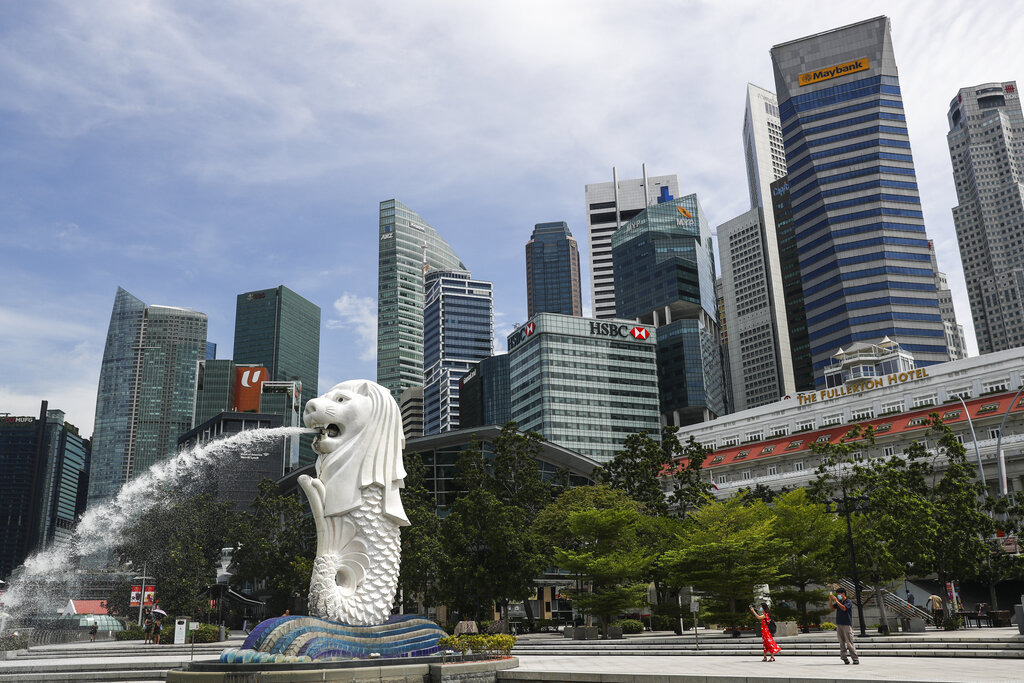Kate Lin: Welcome to the Morningstar Asia Outlook. I am Kate Lin, a data journalist based in Hong Kong. Singapore's reopening after COVID and its strong position as a regional travel and financial hub has made it one of the few markets that had a positive return in 2022. However, REITs market underperformed with the Morningstar Singapore REIT Index falling around 9% in 2022. What does 2023 hold? We are asking Xavier Lee, equity analyst at Morningstar.
Hi, Xavier. What are the factors driving the REITs market decline in 2022, and what can we expect for the next year?
Xavier Lee: Hi, Kate. Yes. So, inflationary concerns and rising interest rates have dampened any positive market sentiments on the lifting of the COVID-19 restrictions, as well as the return to normalization in Singapore. Come 2023, we expect inflationary pressures to ease as sources of today's high inflation unwind in impact. This will hopefully set the stage for a pivot in interest rates.
Lin: Speaking of interest rates, how were S-REITs affected by the rate hikes and will a pivot in interest rate play in their favor?
Lee: Yeah, beyond the obvious impact on the share price of the S-REITs, I would say, most S-REITs have managed the rising cost of debt well in 2022 with their well spread debt expiry profiles as well as their high proportion of fixed rate debt. That said, we think that 2023 could be a turning point for some of the REITs as more of that debt matures and it gets refinanced at the higher borrowing cost. A potential pivot in interest rates could potentially alleviate some of the refinancing pressures faced by S-REITs and hopefully, revive the quiet M&A market for real estate. This should positively help some REITs recycle their assets as well as pay down their debt to a more manageable level. A pivot in interest rates will also almost certainly be a catalyst for S-REIT share prices as well. So, this will be definitely something to look out for, for all of our S-REITs investors.
Lin: So, the reopening of Singapore's borders has driven a strong recovery in the retail sector as tourism returned. So, do you think China's reopened borders will extend this recovery, and how will this affect the retail-focused REITs?
Lee: Definitely. China is Singapore's largest source of inbound tourism. In 2019, it provided 3.6 million of tourist arrivals, which is 20% of Singapore's total tourist arrivals. So, the reopening of China's borders should be a boost for tourism here. The increase in tourist spending will drive further sales growth for retailers and the biggest beneficiary here, in our view, would be malls located at popular tourist destinations such as Orchard Road or even VivoCity that is uniquely located at the entrance of Sentosa.
Lin: However, office REITs are hurt. So, cost cut and layoff, especially among the tech firms, are on the headlines in the past several months. How will these have an impact on office REITs in the coming 12 months?
Lee: Yeah. Considering that tech companies took up about 50% of the grade A office space in Singapore in 2022, we expect leasing demand to weaken slightly in the coming year as companies take on a more cautious approach because of recessionary concerns in 2023. Rental growth is likely to slow down as well with the new supplier of IOI Central Boulevard coming on board in the next year.
So, with that in mind, we think that the quality of our REITs tenant register is highly important in the coming year to be able to handle the market uncertainties. So, in this regard, our top pick remains to be CapitaLand Integrated Commercial Trust (C38U) for its high-quality office tenant register, which includes names like Singapore Sovereign Wealth Fund, Temasek as well as GIC and even bulge bracket bank names like JPMorgan. We like its portfolio. We also like its portfolio of downtown retail malls, which we think will benefit from the recovery in tourism following the reopening of China's borders. So, all in all, we expect CICT to register a 6% distribution per unit growth in 2023, which is one of the highest distribution per unit (DPU) growth figure in our coverage.
Lin: Thank you so much for your time, Xavier. Stay tuned for more on the Outlook series.
IOI Central Boulevard









.png)




.jpg)





